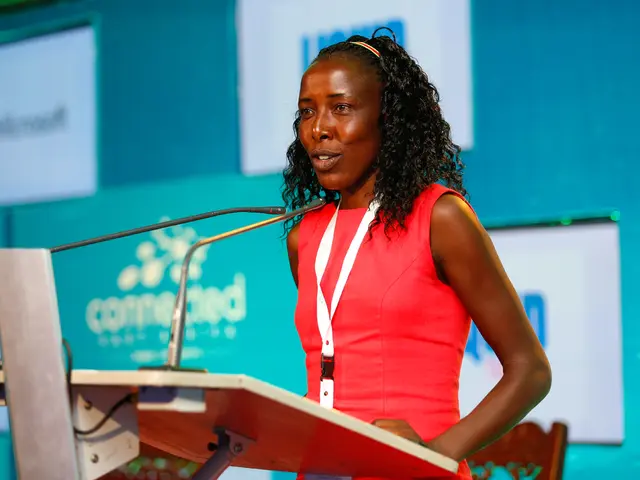Vodafone Leverages Artificial Intelligence Influencers for Brand Narrative Construction
In the ever-evolving world of marketing, a new trend is emerging - the normalization of Artificial Intelligence (AI) in influencer campaigns. Brands like BMW, Calvin Klein, Prada, Samsung, YouTube, and Balmain have already jumped on the bandwagon, using AI influencers in their digital marketing strategies.
Vodafone, a leading telecommunications company, has been at the forefront of this trend. In 2024, they released a fully AI-generated commercial titled The Rhythm of Life. This move reflected a broader trend in the rise of AI influencer marketing.
The use of AI influencers offers brands precise messaging and full creative control, allowing for seamless and efficient alignment with brand identity. These virtual personas can help brands reach a wider audience, as seen with Vodafone's campaign, which surpassed two million views across three videos.
However, the use of AI influencers raises questions about authenticity and whether brands are crossing a line. Navigating AI influencer marketing requires addressing these concerns, disclosing AI use clearly, and blending AI-driven tools with human creativity.
Despite the concerns, the global AI influencer market is projected to be worth approximately $7 billion in 2024. Interestingly, Gen Z is 46% more open to AI influencers compared to other demographics. Yet, only 23% of consumers engage with AI influencers, and nearly half don't trust them.
Vodafone's experiments with AI influencers were not just about testing different styles of advertising. In 2025, they aired an AI-generated commercial spot featuring a KI-generated influencer on TikTok, as part of a test campaign promoting new features and a cashback offer. The TikTok ad marked a more focused evolution, presenting a synthetic influencer front and center to capture attention and spark conversation.
The AI influencer in Vodafone's TikTok campaign had uncanny visuals, with mismatched facial expressions, inconsistent hair movement, and flickering moles. These imperfections, while noticeable, did not deter the campaign's success.
As we move forward, the future of influencer marketing seems poised to be both virtual and visceral, provided it is executed with care. With 63% of marketing professionals planning to integrate AI/ML in influencer strategies, it's clear that this trend is here to stay. However, it's crucial to remember that maintaining authenticity, transparency, and consumer trust will be key to its success.
Read also:
- Elon Musk accused by Sam Altman of exploiting X for personal gain
- China's Automotive Landscape: Toyota's Innovative Strategy in Self-Driving Vehicles
- Musk asserts his intentions to file a lawsuit against Apple, alleging that they have neglected to include X or Grok in their list of top apps.
- Digital Colour Transition: Embracing Digitization Prior to Artificial Intelligence







